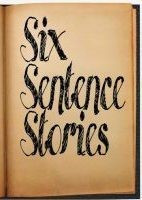
Tipping Point
“It’s not a question of love, Peter, it’s a question of practicality.”
Over their usual weekend coffee, Leslie finally found herself able to say out loud to Peter what she had been deliberating internally for so long: their relationship wasn’t working in its current state and some kind of revision, adjustment, or violent shakeup was needed to breathe life back into its dying form.
Was it ever really alive, though, she wondered, or was it just the next logical step in the natural progression of things? Could a fire really dwindle to ember if it never really sparked to begin with?
As always, when Peter spoke he seemed somehow to understand her just when she’d reached a point of conviction that he was completely disconnected and oblivious to the problem.
“Sometimes,” he said slowly as he set down his mug, “the slow burn is the better way to go.”
~~~~~~~~~~~~~~~~~~~~~~~~~~~~~~~~~~~~~~~~~~~~~~~~~~
Written in response to this week’s Six Sentence Stories challenge, hosted by Girlie on the Edge. Each week writers are challenged to spin a tale in just six sentences.
This week’s cue is QUESTION.
Click on the link right here to join us. Read some great stories and link up to share your own!
Featured image by StockSnap from Pixabay
Love this? Share the love and tell someone!
You might also like...
Lisa A. Listwa is a self-employed writer with experience in education, publishing, and the martial arts. Believing there was more to life than punching someone else’s time clock and inspired by the words of Henry David Thoreau, she traded her life as a high school educator for a life as a writer and hasn’t looked back. She is mother to one glorious handful of a daughter, wife to the nicest guy on the planet, and reluctant but devoted owner of three Rotten Cats. You can find her adventures and thoughts on living life deliberately here on the blog.
9 Comments
Comments are closed.


I can’t imagine love being practial. This is a thought provoking post and was really well done. Glad you’re here. Great use of the cue
Thanks, Paul. This one took a while – distraction being what it is right now and all. But I’m glad I’m here, too.
Love is anything but practical.
Ha! Hoist on her own petard!*
She was the one to stake out ‘practicality’ as the more under-pinnings of what she clearly anticipates to be a ‘discussion’**.
Gender bias notwithstanding, I got to back my boy, Peter on this.
Of course, the ‘why’ (of my position) will surely reveal way, way too much of my own, personal self.
I would venture that the true test of character will be found in Leslie’s emotional state when she responds to Peter’s suggestion that this might be a ‘tomato/toe mahtoe’ conflict.
Of course, we don’t have much history to go on here, but, I mean, if, as she suggests, the fire has gradually died, then where was she? Unless the fire was suddenly extinguished, then I might be asking… ‘Compared to what/compared to who?’
But this isn’t about me. It’s about two people who stand at a doorway. Do they proceed together or apart?
Fun Six.
(Liked the not-to-be-ignored first sentence. A strong statement, followed by a pre-emptive citing of something presumedly beyond question, ‘practicality’. As a story (six or six hundred sentences), there is little chance the narrative not leading to higher stakes and emotions. Nice ‘informing’ us of the level of relationship, with the “As always, when Peter spoke he seemed somehow to understand her…”
I like the idea of describing the characters (and relationships) in little, tiny, almost ‘throw-away’ inferences like this. Its a concept I’ve always struggled with in my own efforts, To ‘trust the reader’ when it comes to how much we (the writer) has to come out and say explicitly as opposed to what you’ve done here. Or, at least, what I believe you’ve done here.
Cool.
Will stop with analyzing and dramatizing.
* I’m sorry, I’ve always wanted to use that admittedly archaic expression, courtesy of another writer
** and which child among us does not fear that misuse of a civil term, foisted on us by the parents down through millennia, “No, dear your father and I are not arguing, we’re having a discussion.”
Haha – a nice hat tip to Mr. Shakespeare there, Clark. Very nice. 😀
I do tend to be sparse in my words. I like when I have to do that in my own reading. But I often wonder whether I leave too much out, thus making it hard for the reader to truly know what’s happening or what’s true. So based on your comments here, perhaps this was just the right mix? I’ll call this success.
Please do analyze away – I welcome the feedback. Be careful or I’ll put you on my ask list when (if) I ever finish the novel. LOL 😀 Seriously, thank you for the great feedback.
“Could a fire really dwindle to ember if it never really sparked to begin with?”
It would appear Leslie is affirming the “matter of love” with her reference to embers in the sentence above. It would also appear that Peter knows her better than she perhaps knows him. Does this give her pause? 😀
I’d like to think so, Denise.
She is not unaware of what is good. But she may be of the opinion that something else is less than that. Does she come across as conflicted to you?
Yes. Her opening statement is such that she invites Peter to dispute it. She is still “engaging” Peter, so no doubt she is conflicted. Otherwise, would she have not ended it?
Her character demonstrates an initial certainty, supporting her decision that all was lost – embers only. While she gives no overt indication she’s willing to try and fan those embers to discover if fire may again burn, she finds herself surprised at Peter’s intuitiveness. She still loves him. Perhaps, it’s not about them but more about her??? Aren’t characters fun?!!
Right! And yes, character work is fun. I find myself liking that more than anything when I write. More and more all the time.
I love your analysis. Trying to decide if I’ve communicated well or I’m that transparent. Or if it matters… I definitely like that it gives you something to consider, to ask. That’s a win for me.